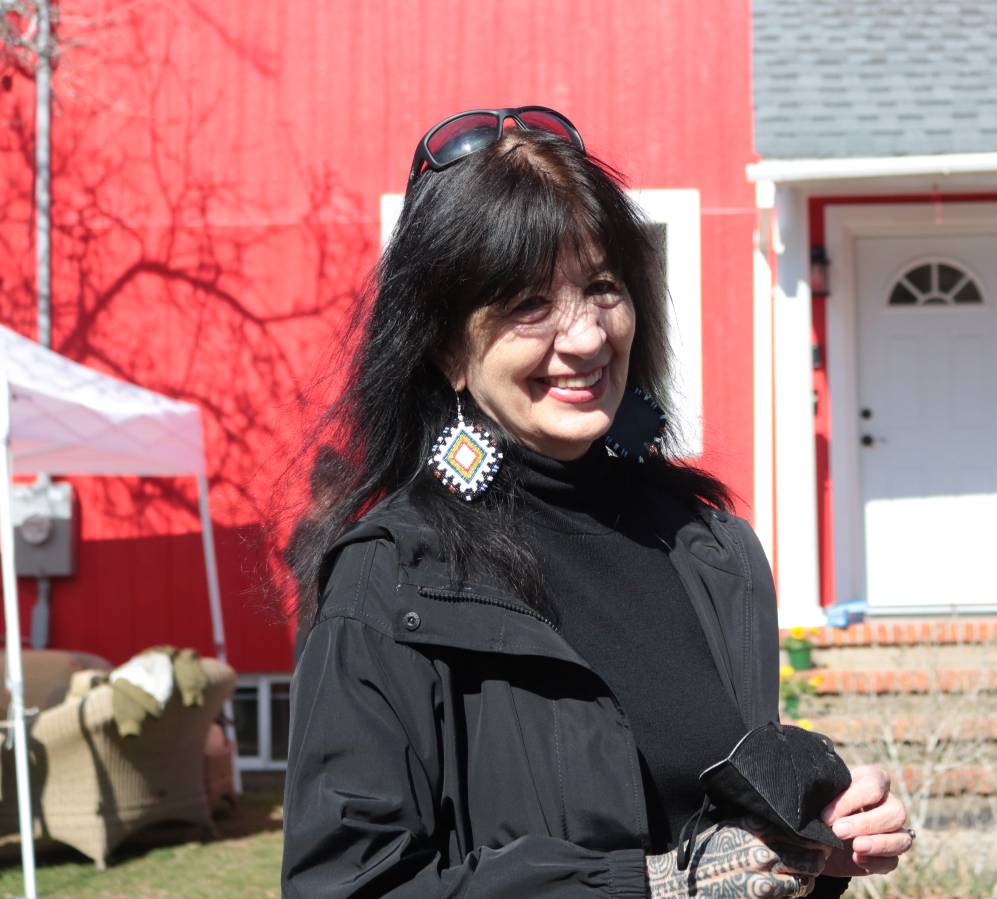
- Details
- By Jenna Kunze
Joy Harjo’s three terms as US poet laureate come to an end at the end of this month. The Library of Congress will host a closing ceremony complete with readings and a free dance party in Washington D.C.
The Library of Congress selects a poet laureate to serve an eight month term from October to May each year; Harjo is the second poet laureate to ever be selected to serve three consecutive terms in the position’s 85 year history. She is the first ever Native American to be appointed to the position, hailing from the Muscogee Creek Nation in Tulsa, Oklahoma.
“For a remarkable three terms as U.S. poet laureate, Joy Harjo has tirelessly promoted Native poets and poetry,” Librarian of Congress, Carla Hayden, said in a statement. “To her, poems are ‘carriers of dreams, knowledge and wisdom,’ and she has been an insightful voice during the difficulties of a pandemic.”
During her laureateship, Harjo’s signature project uplifted the poetry of 47 different Native Nations. She collected audio recordings of Native poets, complete with an interactive map, to live in a collection called “Living Nations, Living World.” She also published a corresponding anthology to the recorded work.
In her 50-year career, Harjo has created nine books of poetry, two memoirs, a children’s book and an adolescence book. She’s also a decorated musician always trying her hand at new skills.
“I’m always learning,” she told an auditorium of high schoolers on Long Island during a keynote address last week. She was responding to a student’s question on how she stays inspired. “I started playing saxophone when I was almost forty. I’m learning bass right now.”
The Poet Laureate Closing Event will take place in the Coolidge Auditorium in Washington, D.C. on April 28, at 7 p.m. The event will include performances from Harjo, singer-songwriter Jennifer Kreisberg (Tuscarora, North Carolina), and poet Portlyn Houghton-Harjo (Mvskoke, Seminole).
The following day at 7 p.m. the Library of Congress will host a dance party for Harjo in the Montpelier Room featuring DJ Tnyce (Haliwa-Saponi) — and showcasing songs selected by Harjo as well as recordings of her own work.
The same week, the Library will host the historic first retreat of In-Na-Po — Indigenous Nations Poets, a new organization mentoring emerging Native writers founded by former Wisconsin Poet Laureate, Kimberly Blaeser (Anishinaabe, White Earth Nation). Harjo is an advisory board member of the organization. Thirty fellows, faculty, and guests will participate in workshops and panel discussions in the Library’s Jefferson Building.
Tickets to Thursday and Friday’s events are free and available online. Events will also be livestreamed on the Library’s YouTube channel and Facebook page.
Harjo said that, following the conclusion of her laureateship, she’s going to take time to focus on her art, particularly her painting.
“I was told as poet laureate I have to behave,” Harjo said last week at a reading in Southampton, New York. “My laureateship ends the last Friday of this month.”
More Stories Like This
Watermark Art Center to Host “Minwaajimowinan — Good Stories” ExhibitionMuseums Alaska Awards More Than $200,000 to 12 Cultural Organizations Statewide
Zuni Youth Enrichment Project Takes Top Emerging Artist Apprentices to Phoenix for Artistic Exploration and Cultural Immersion
From Dishwasher to Award-Winning Chef: Laguna Pueblo's Josh Aragon Serves Up Albuquerque's Best Green Chile Stew
Rob Reiner's Final Work as Producer Appears to Address MMIP Crisis
Help us defend tribal sovereignty.
At Native News Online, our mission is rooted in telling the stories that strengthen sovereignty and uplift Indigenous voices — not just at year’s end, but every single day.
Because of your generosity last year, we were able to keep our reporters on the ground in tribal communities, at national gatherings and in the halls of Congress — covering the issues that matter most to Indian Country: sovereignty, culture, education, health and economic opportunity.
That support sustained us through a tough year in 2025. Now, as we look to the year ahead, we need your help right now to ensure warrior journalism remains strong — reporting that defends tribal sovereignty, amplifies Native truth, and holds power accountable.
 The stakes couldn't be higher. Your support keeps Native voices heard, Native stories told and Native sovereignty defended.
The stakes couldn't be higher. Your support keeps Native voices heard, Native stories told and Native sovereignty defended.
Stand with Warrior Journalism today.
Levi Rickert (Potawatomi), Editor & Publisher


